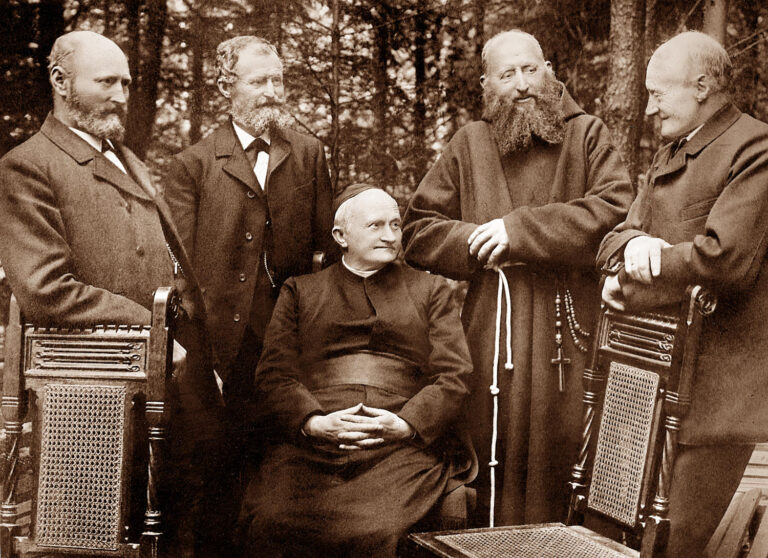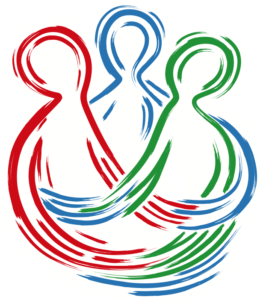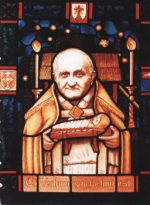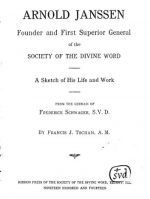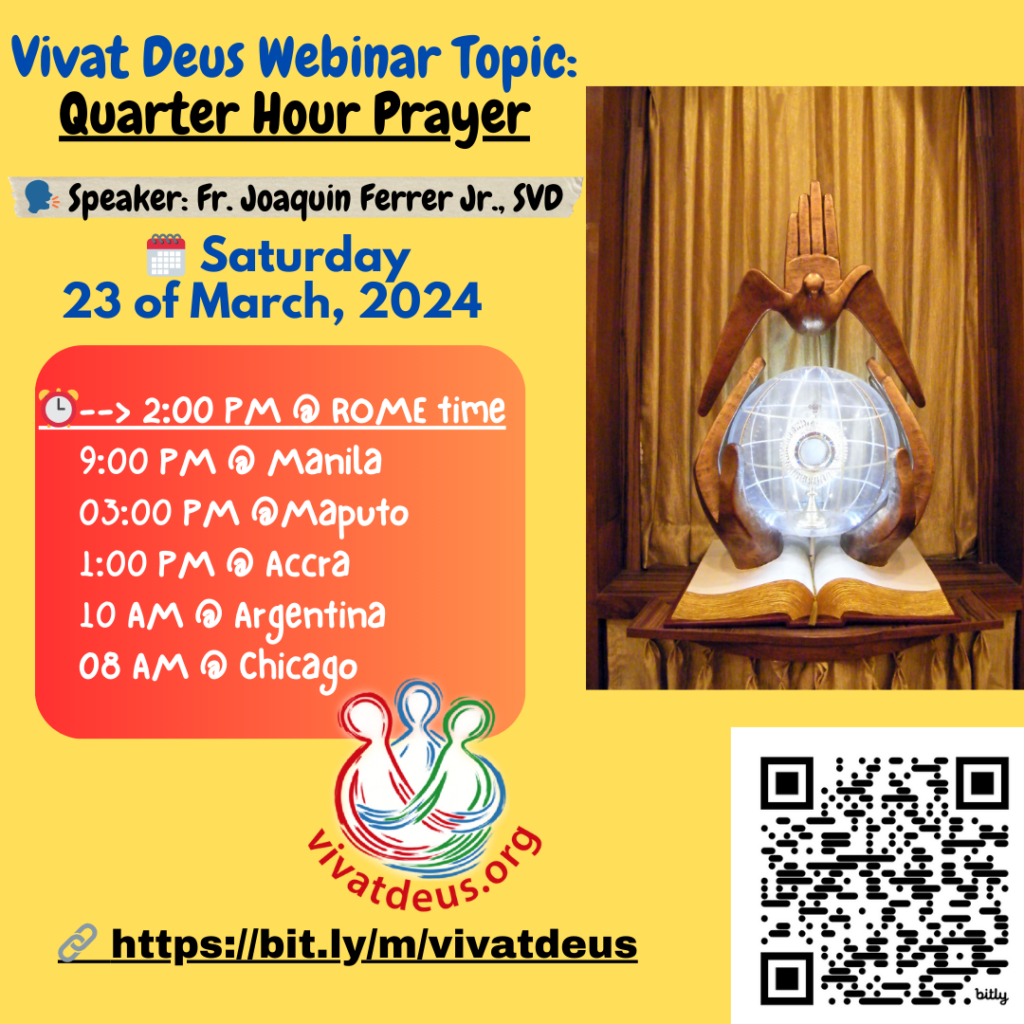Allow me to offer a short reflection on the theme of this assembly, namely, “The Brother vocation and Prophetic Dialogue”. And I would like to do so through a description of the Brother Vocation which is also the title I have chosen for this address, that is, “Consecrated for the Service of Fraternity”. The two principal ideas in this title, “consecration” and “fraternity”, relate well, I believe, with the notion of “prophetic dialogue”. For, religious consecration entails the call to prophetism, and the witness to fraternity requires a commitment to dialogue.
-
Consecration
The religious life, as we know, has to do with the charismatic dimension of the Church. The Church, however, is visible in the world mainly through its hierarchical structure. While the charismatic dimension is an integral part of the Church, it is not the primary means of the Church’s visibility in the world.
But perhaps the charismatic dimension of the Church is not meant to be visible in the same way as the hierarchical structure. Or, it is meant to be visible only in its prophetism or counter-cultural witness. For, if it were visible like the hierarchy, perhaps it would no longer be prophetic or counter-cultural; it would lose its prophetic edge and its capacity for counter-cultural prophecy. Perhaps the consecrated life is precisely like the Holy Spirit. It blows where it wills; you do not see where it comes from or where it goes. It is visible only in its effects – men and women who are empowered, conditions of life that are purified or cleansed, human situations which are ennobled and dignified.
The whole Society, as a religious congregation, belongs to this charismatic dimension of the Church. But the priests among us, insofar as they perform a ministerial function and exercise the role of pastors in the Church as “helpers of the bishops” (LG 22), also share in the hierarchical structure of the Church. On the other hand, the Brothers among us, unencumbered by the “weight of the hierarchy”, can express the charismatic dimension of the Church more fully and exercise the prophetic role more radically.
-
Fraternity
The consecrated life reveals in a particular way the nature of the Church as a mystery of communion. For this reason, the post-synodal apostolic exhortation, Vita Consecrata, presents the consecrated life as, among other things, a “signum fraternitatis”, a sign of communion in the Church (VC, chapter II). According to VC, the consecrated life is “signum fraternitatis” particularly because of the common life that is entailed in religious consecration (VC 41).
As part of the consecrated life in the Church, the SVD as a whole – both priests and Brothers – shares in this vocation of being a sign of communion in the Church. But I believe the Brothers, whose vocation can be described as a call to be a Brother to all, are eminently in a position to give this witness in the Church. In a true and profound sense, the Brothers among us are a “signum fraternitatis” in the Church.
I believe we can adopt VC’s terminology and describe the Brother vocation as a call to be a “signum fraternitatis” in the world, in the Church, in our Society. “Signum fraternitatis” – a sign of communion, a sacrament of brotherliness, a witness to solidarity, an invitation to dialogue. Very often this sign or witness can be made or given only by prophets. And by their nature, prophets are a small minority. For the majority easily succumbs to the surrounding culture or is co-opted by the prevailing mentality. It is the minority that is usually alert to the need for counter- cultural witness and thus preserves the prophetic spirit.
I believe the heart of the Brother vocation is to be a “signum fraternitatis”. What he does – or his concrete profession – will matter little. What is important is that, regardless of what he does, he is always a “signum fraternitatis”. This vocation is especially relevant today – in the world which is often torn by political, ethnic and religious conflicts; in the Church which is always tempted by worldly power and authoritarianism; and in our Society which is sometimes blind to clericalism and exclusivism.
-
Conclusion
It is certainly my hope that this assembly will bring about a stronger commitment on the part of everyone in the Society to the promotion of the Brother Vocation. All of us should do our best to help especially in the promotion of Brother vocations for the Society. We should spare no effort in trying to attract more and more young people to join the SVD as Brothers. And we should do everything we can to care for the ones who actually join us.
Having said this, however, I believe it is also important to be realistic and not raise our expectations too high. I think it is unrealistic to expect that, any time in the future, our Society will again be brimming with Brother vocations. Perhaps the Brothers will always be a minority in the Society. But they are not, for that reason, less important in the Society. Nor, also for that reason, their contribution to mission is less significant. Perhaps, Brothers in the Society will always remain a “little flock”. But God can do great wonders with the little flock. This, I believe, is what we see in the history of God’s chosen people in the bible and in the Church. God’s preference is for the little ones, and God constantly does wonders with the little ones precisely because they are the little ones.
From the people of Israel (the smallest of all the nations) to the early Church (made up of poor illiterate fishermen). From Moses against Pharaoh and David against Goliath, to the child Jesus against King Herod and Peter and Paul against the Roman Empire. From Catherine of Siena against the Roman Emperor and Francis of Assisi against the Pope, to Mother Teresa of Calcutta against widespread poverty and Arnold Janssen against Bismark. The little ones are God’s best instruments to bring about his wonders in the world.
Chapter 7 of the Book of Judges relates how Gideon prepared himself for the battle against Midian. “The troops with you are too many for me to give the Midianites into their hand”, God tells Gideon. And God explains: “Israel would only take credit away from me, saying, ‘My own hand has delivered me’” (7:2) . So, Gideon reduced the troops from 32,000 to 10,000 and from 10,000 to just 300. Armed only with horns and clay jars with torches inside, these 300 men defeated an army “as numerous as locusts” (7:12). They blew their horns and broke their jars, holding their torches in the left hand and their horns in the right. The camp fell and they conquered Midian.
We do not need to be many in order to be God’s powerful instrument. We do not need to be plenty in order to be significant. We only need to be vessels of clay ready to be broken so that the light inside us may shine out to the world around us. May this assembly keep our light burning and make us ready to be broken for God and God’s people.
(Excerpts from Fr. General’s address to the Second General Assembly on the SVD Brother Vocation, 29 June-12 July 2009, Cebu City, Philippines)
